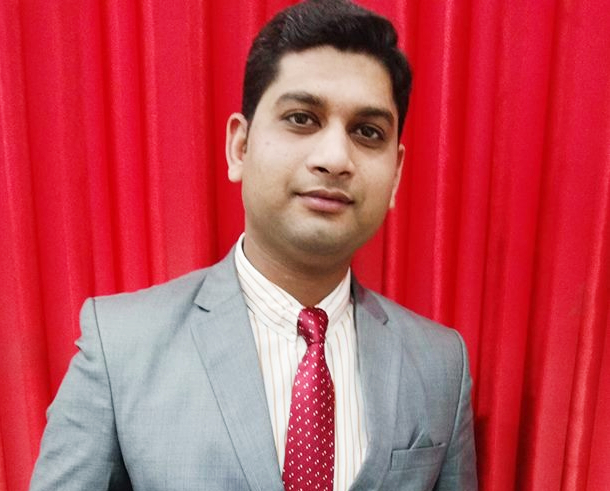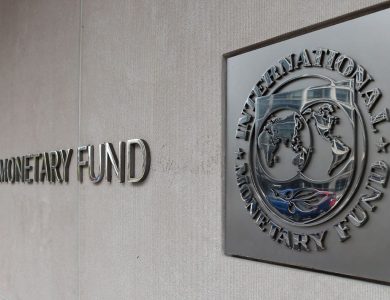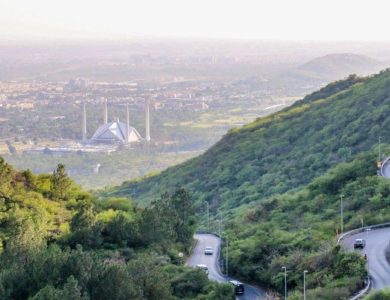
Rana Ali Zohaib
In March 1993, the worst situation in India erupted when a city like Mumbai was bombed in an hour and a half. Successive bombings in 13 locations have killed at least 200 people. The Indian government has blamed Dawood Ibrahim for the bombings. On August 18, 2020, a notification was issued by the government of Pakistan to impose more sanctions on banned organizations and the Indian media started shouting. The notification issued by the government of Pakistan also includes the name of Indian underworld Don “Dawood Ibrahim”. In which Dawood Ibrahim’s address was written as Karachi Pakistan. Because of this address, India, which has been shouting for the last 27 years that Dawood Ibrahim has been given shelter by Pakistan, has turned into a skeptic. Unfortunately, this happened when the FATF meeting in October was to take a decision to remove Pakistan from the gray list.

Dawood Ibrahim was born on December 26, 1955, in Ratnagiri, Maharashtra, India in a Konkani Muslim family. His father, Ibrahim Kaskar, worked as a head constable in the Mumbai Police and his mother, Amina, was a housewife. Dawood lived in the Timkar Mohalla area of Dongri and studied at Ahmed Silver High School from where he graduated. Dawood started his career in crime by engaging in fraud, robbery and petty crimes at an early age and later joined Bashu Dada’s group, a local Don. He later split from the group and formed his own gang with his elder brother Shabir Ibrahim Kaskar in the late 1970s. After Shabir was killed by a rival Pathan gang, he became the sole boss of his group, known as D Company. He has since been involved in gold smuggling, real estate, extortion, and drug trafficking.
In December 1974, the rig tag gang of Dawood Ibrahim and his friends looted Rs. 475,000. Angadias (local couriers) used to take cash from rich Gujarati merchants. After getting the looted money, it was estimated that the money actually belonged to the Bombay Metropolitan Bank. Dawood and Shabbir became rich thugs overnight but they made Pathan gang leader Samad Khan their enemy. When the state of emergency was declared in India between 1975 and 1977, most of the goons, including Haji Mastin and Karim Lala, were either sent to jail or went into hiding. Dawood and Shabbir took advantage of the opportunity and started their own Haji Mastan smuggling business. By 1980, Dawood and Shabbir had become as rich and influential as the Pathan gang. He also enjoyed the co-ordination of some factions within the Mumbai Police who used him as a way to stem the growing menace of the Pathan gang. Used to provide help. In return, the police will turn a blind eye to their illegal activities. Tensions between the Pathan gang and Dawood escalated to the point that in 1981, Samad Khan decided to eliminate Shabbir and Dawood in order to regain control of the underworld in south Mumbai.

On February 12, 1981, Samad, Alamzeb, and Amirzada chased Shabbir’s car and finally shot him dead at a petrol pump in front of the Siddhi Vinayak Temple in Bhadavi. Contrary to public rumors, gangster Mania Sarve was not involved in Shabbir’s murder. Immediately after killing Shabbir, Samad Pathan’s boys went back to Tamkar Mohalla to kill Dawood Ibrahim but he was rescued by his bodyguard Khalid Pahlawan. Dawood escaped and avenged his brother’s murder.
To avenge the murder of Shabir Kaskar, Dawood gave a contract to Rama Naik, the leader of the Bara Rajan gang, to kill Samad Khan, Amirzada, and Alam Zeb. The first to be eliminated was Amirzada, who was shot dead in Mumbai Sessions Court in September 1983. Alam Zeb was shot dead by Gujarat police in an encounter in Vadodara. After Alam Zeb’s death, the police launched a raid to arrest Dawood. In October 1984, Samad Khan was shot dead by members of the Rama Naik gang outside his apartment in south Mumbai. Dawood Ibrahim fled from India to Dubai in 1986 after being wanted by the Mumbai police for the suspect of murder of Samad Khan. In the years that followed, Dawood Ibrahim expanded his group with the help of another commander, Chhota Rajan, who had 5,000 members with his gang and received annual extortion of Rs tens of crore in the early 1990s.
Dawood is believed to have been the mastermind of the mass bombings in Bombay in March 1993. In 2003, the governments of India and the United States declared Ibrahim a “global terrorist.” Indian Deputy Prime Minister LK Advani called it a major development. Ibrahim is on India’s “Most Wanted List”. In a public speech in June 2017, Ram Jethmalani confirmed that after the Bombay blasts, Dawood Ibrahim had called him from London and said That he is ready to come to India and stand trial, on the condition that he should not be placed in a third place. Jethmalani had conveyed this to Sharad Pawar, but the politicians in power did not agree with the proposal.
The US Treasury Department has designated Ibrahim a terrorist under its international sanctions program, which effectively barred US financial institutions from working with him and was believed to be under his control. Assets will be seized. The Treasury Department is keeping a close eye on Ibrahim, whose syndicate is reported to have collaborated with al-Qaeda on smuggling routes from South Asia, the Middle East, and Africa. The fact sheet also states that Ibrahim’s syndicate is involved in large-scale drug shipments to Britain and Western Europe. He is thought to have had links to al-Qaeda leader Osama bin Laden. In the late 1990s, Ibrahim traveled to Afghanistan under Taliban protection. The syndicate aims to destabilize India by rioting, terrorism, civil disobedience, and pumping counterfeit Indian currency notes into the country.
According to IndiaToday, Ibrahim provided the supplies for the 2008 Mumbai attacks. According to reports, Dawood Ibrahim’s current criminal activities include financing terrorism, drug trafficking, guns, extortion and money laundering. He has also invested heavily in real estate in Karachi, Dubai and India. Ibrahim is believed to control a very large reference system, a non-governmental system commonly used to transfer money and remittances out of sight of government agents. Ibrahim was involved in financing the growing attacks in Gujarat. In 2006, the Indian government handed over a dossier to Pakistan containing a list of 38 most wanted criminals, including Dawood Ibrahim, which demanded that Dawood Ibrahim be extradited to India.
Ibrahim and his syndicate “D Company” are involved in financing the Bollywood film industry. Many Bollywood studios and films were funded by D Company in the 1980s and 1990s. At the time, Dawood Ibrahim was associated with a number of celebrities, including beauty contestant Anita Ayub and Bollywood actress Mandakini. D Company is also known for extortion and intimidation targeting Bollywood producers and celebrities, and he was involved in the murders of Bollywood producers Javed Siddique and Gulshan Kumar. Is based on the activities of, and its sequel, The 2005 film “D”, “Shootout Lokhandala” (2007), the 2010 film “Once Upon a Time in Mumbai” and the 2013 film “D Day”. The 2013 film “Shoot Out At Wadala” is based on the rise of the D Company. The movie “Hasina Parker” (2017) is a biopic based on his sister Hasina Parker. The 2018 video game “Hitman 2 Mumbai” features a crime lord who is active in the film industry. “Dawood Rangan” as a target, probably referring to Ibrahim himself.

It is believed that Ibrahim lived first in Pakistan and then in the United Arab Emirates. India says it has moved to the Pak-Afghanistan border. On May 5, 2015, Haribhai Chaudhary, a Member of Parliament, informed the Lok Sabha that nothing was known about Ibrahim. However, on May 11, the then Home Minister of India, Rajnath Singh, informed Parliament that Ibrahim was in Pakistan. Dawood was in Karachi, Pakistan on August 22, 2015, according to Indian News Media Times Now. According to Media Corporation, he had a conversation with a woman in Karachi on August 22, 2015. In the conversation, he said that she is Dawood’s wife and “he is sleeping”, while in the other conversation he said that she does not know anyone by that name (Dawood Ibrahim). According to a dossier prepared by India in August 2015 which handed over to Pakistan, Ibrahim has nine residences in Pakistan and has three Pakistani passports which he often uses for travel.
According to the dossier prepared by New Delhi, the 59-year-old crime lord has more than half a dozen residences in Pakistan, including one acquired two years ago in Karachi near the home of Bilawal Bhutto Zardari, the son of former Pakistan prime minister Benazir Bhutto.
Dawood’s other addresses, according to the dossier, are — Moin Palace, near Abdullah Shah Ghazi Dargah, Clifton, Karachi; 6A Khyabar Tanzeem, Phase V, Defence Housing area, Karachi; an ISI safe house on Bhoubhan Hill, 20km from Islamabad on the Islamabad-Muree Road; P6/2, Street No 22, House No 29, Maragalla Road, Islamabad; 17 CP Bazar Society, Block 7-8, Amir Khan Road, Karachi; 30th Street in Phase 6 extension of DHA in Karachi; 8th floor of Mohran Square near Pardesi House 3, Tawar area, Clifton, Karachi; and a palatial bunglow in the hilly area of Nooriabad in Karachi.
The dossier also says Dawood has three Pakistani passports — the first issued in Rawalpindi (No G-866537), the second in Karachi (No C-267185), and a third one also issued in Karachi (No KC-285901). The Pakistani passport number of wife Mehjabeen is No J-589103, son Moeen No J-588518, and daughter Mehrukh, married to the son of former Pakistani cricketer Javed Miandad, possesses passport No J-563473.
Dawood Ibrahim lived in DHA, Lahore. When he shifted from Dubai to Karachi, he initially worked with the MQM, and then it broke up, due to which the relations between the MQM and Dawood did not remain good. General Usmani asked the Karachi Sector Command to take action against Dawood Ibrahim. When the news reached General Musharraf, Musharraf not only stopped the Sector Command from taking action but also shifted Dawood from Karachi to another place under high security.
بہترین کتب اور معیاری قیمت کے لئے ننک پر کلک کیجئے
https://www.facebook.com/bookshutstore
When Maulana Masood Azhar was imprisoned in Tihar Jail, India, some members of his organization met Dawood Ibrahim and sought help to get Maulana out of jail. Dawood Ibrahim demanded Rs 26 crore at that time on the condition that Maulana would have to be taken out of the jail premises. He could be taken to Dubai or Pakistan wherever he wanted, but the deal could not be completed.
India never misses an opportunity to discredit Pakistan but in the case of Dawood Ibrahim, it seems that India is telling the truth. If Dawood Ibrahim has nothing to do with Pakistan or Pakistan does support him, then why was Dawood Ibrahim’s name included in the new notification banning the leaders of banned organizations? This question has arisen for the government and security agencies of Pakistan, the answer to which will have to be given to Pakistan tomorrow if not today.
Note: Wikipedia, Google, and information from Indian sources were used to compile this article







